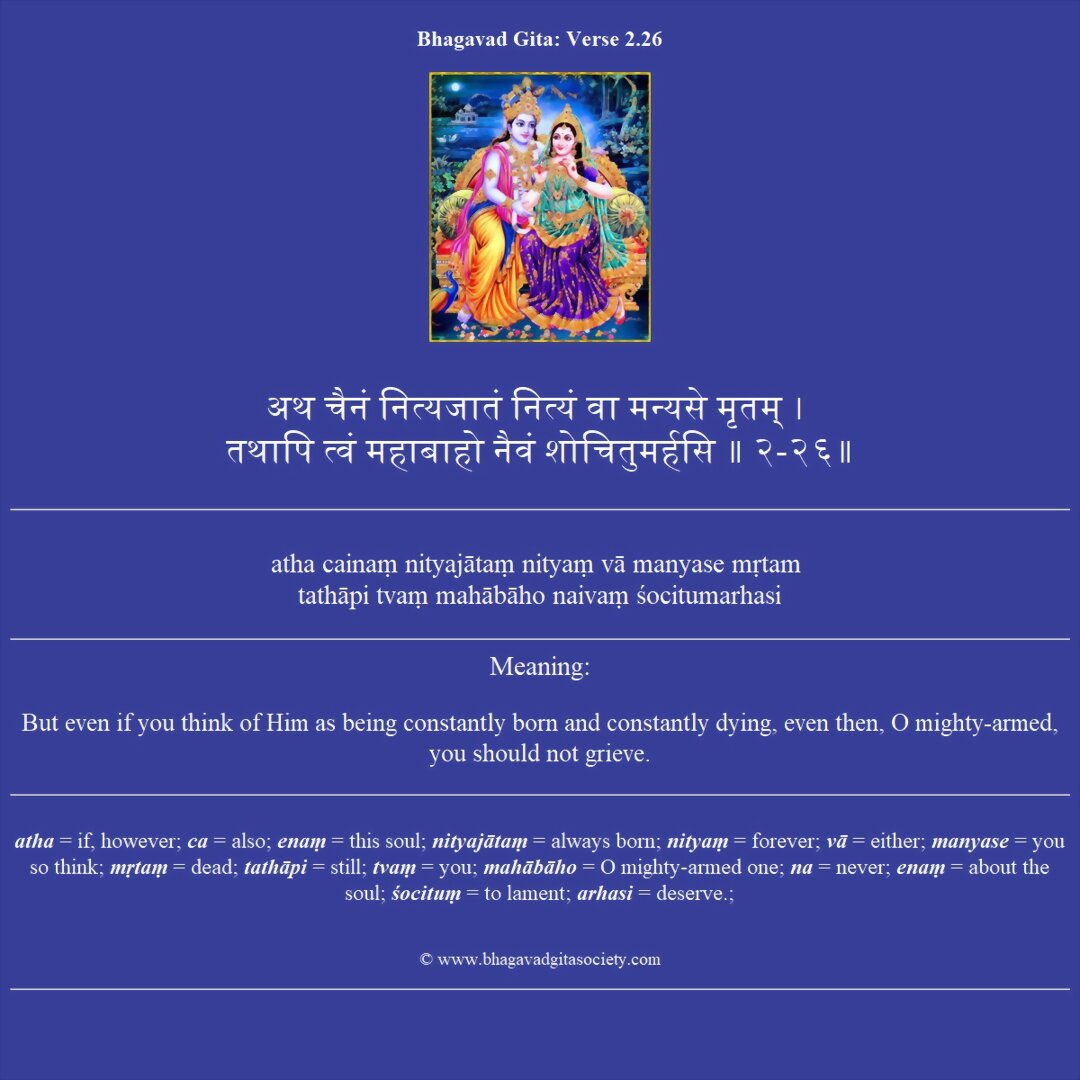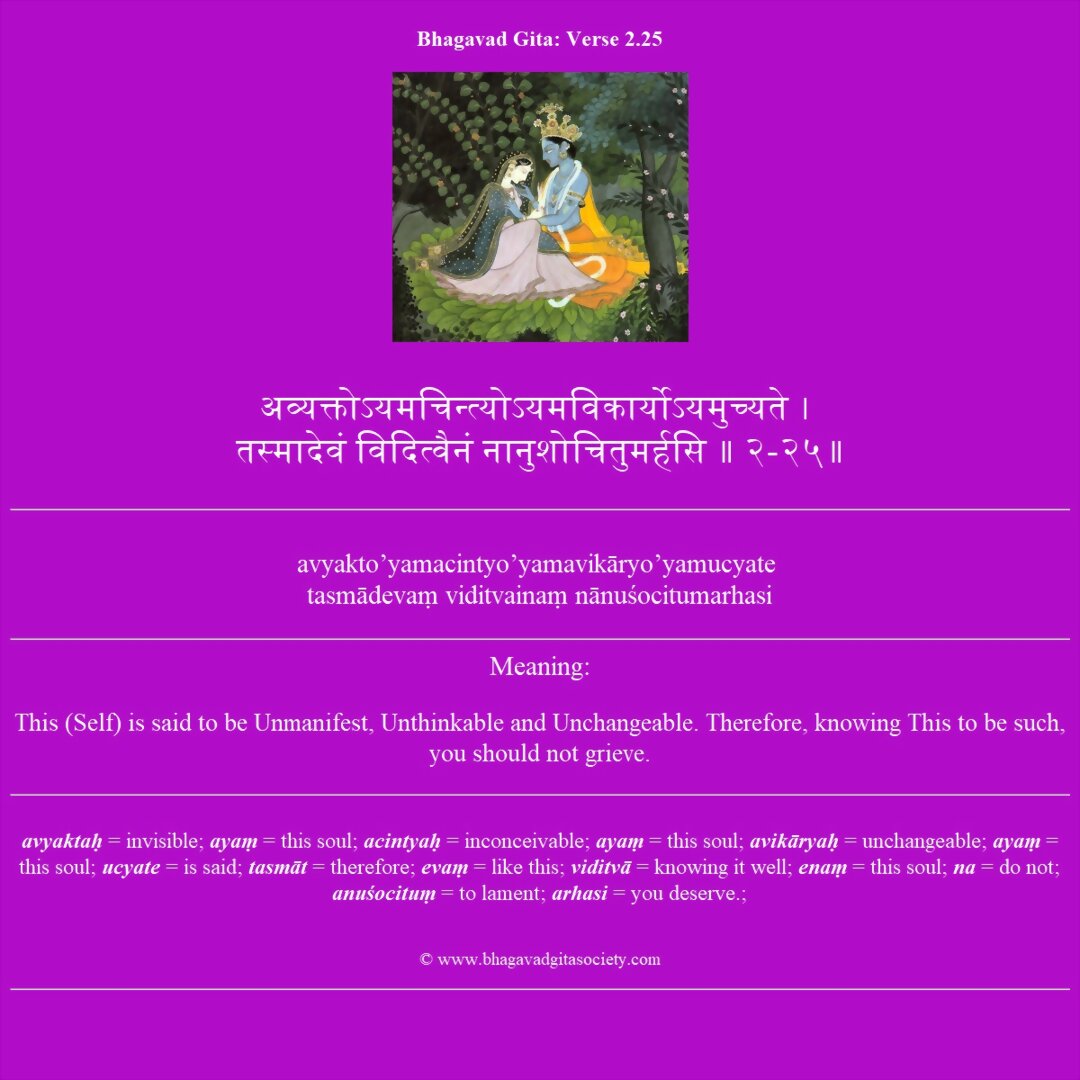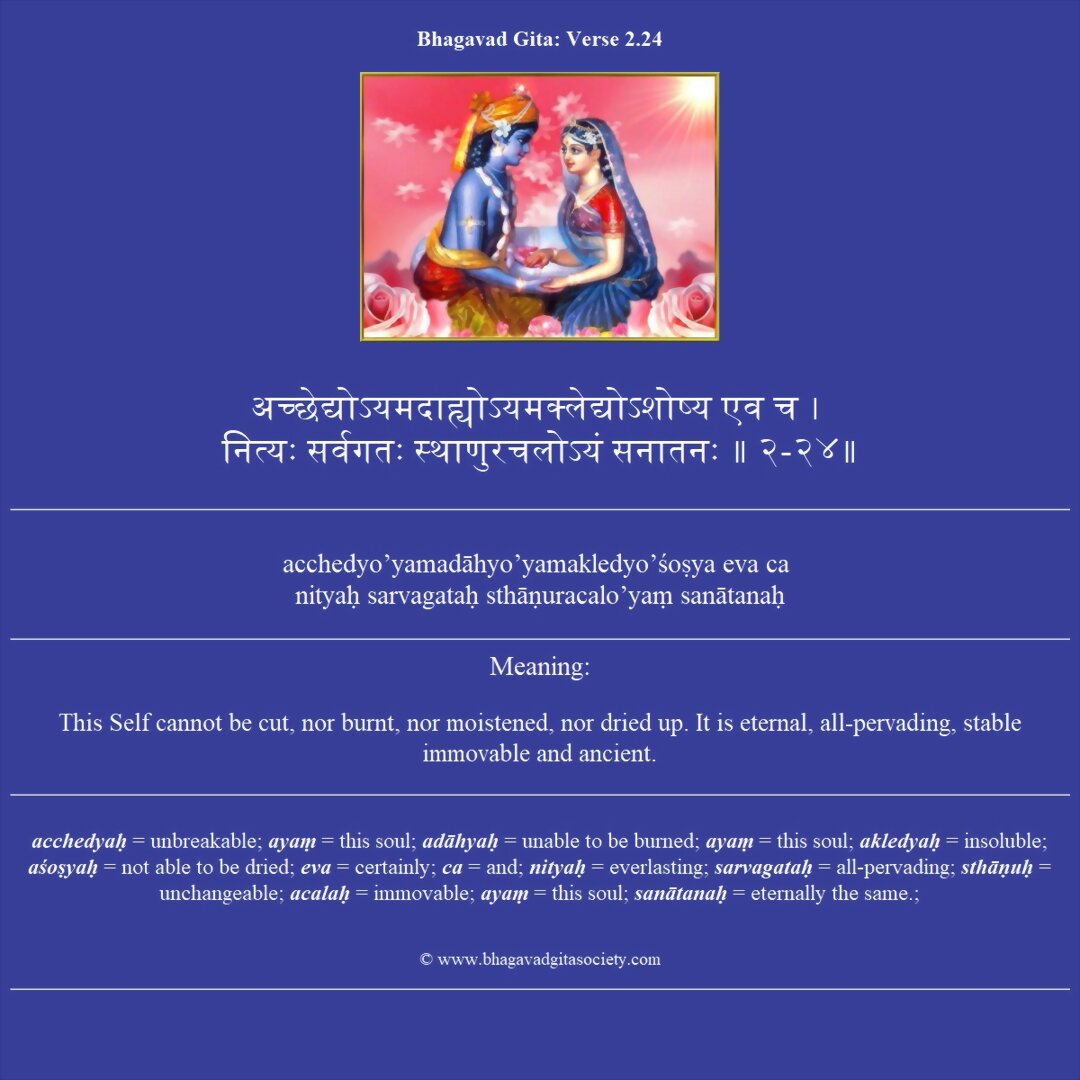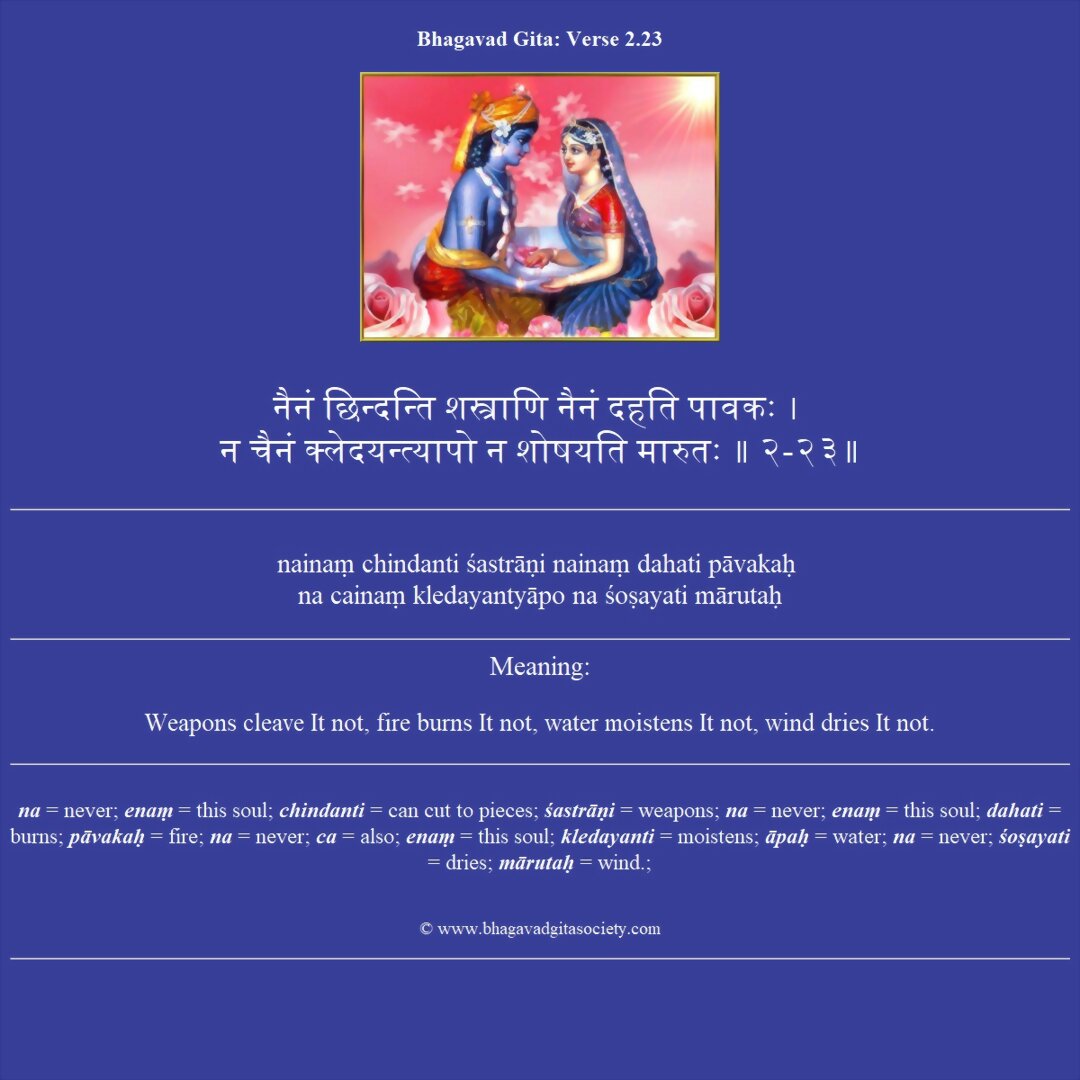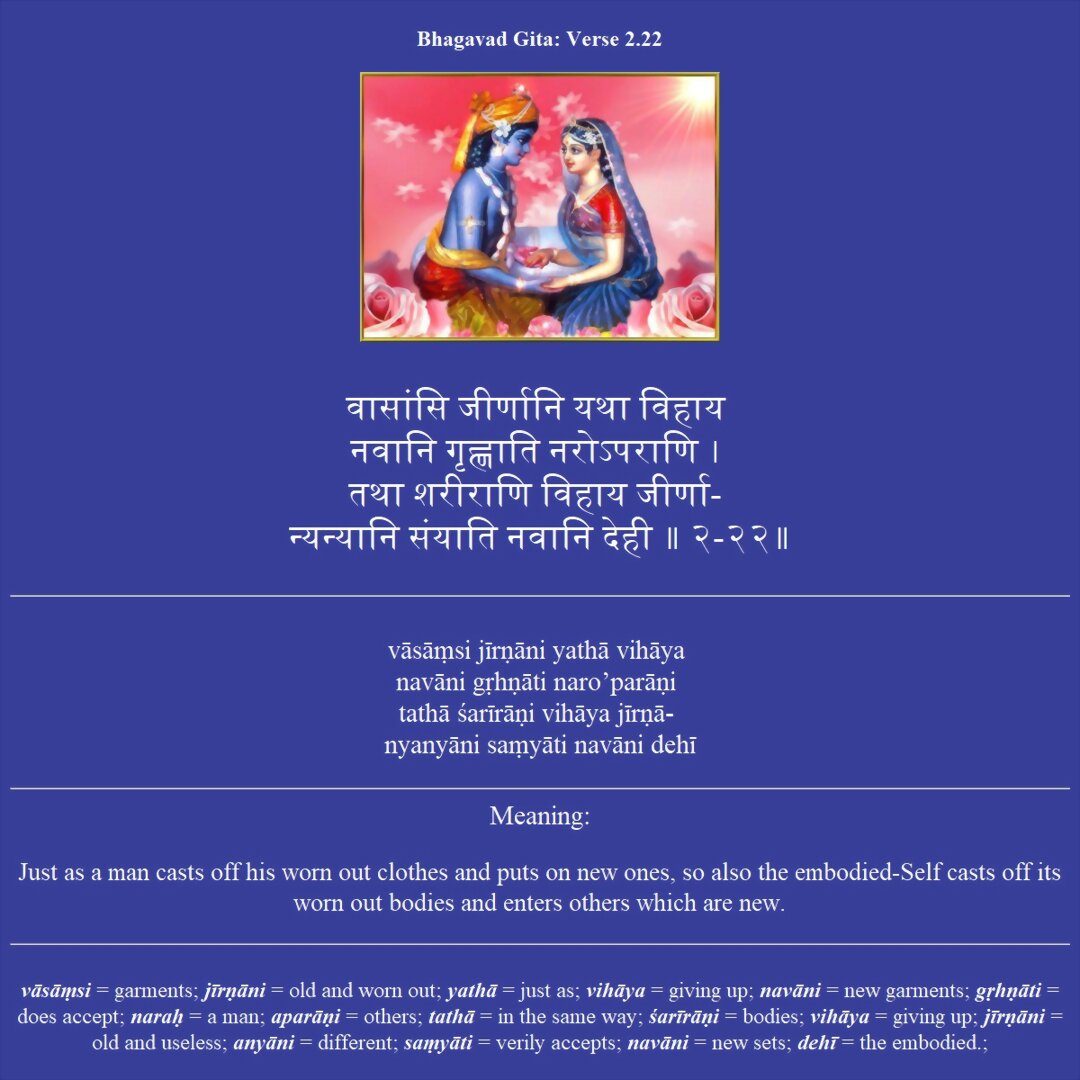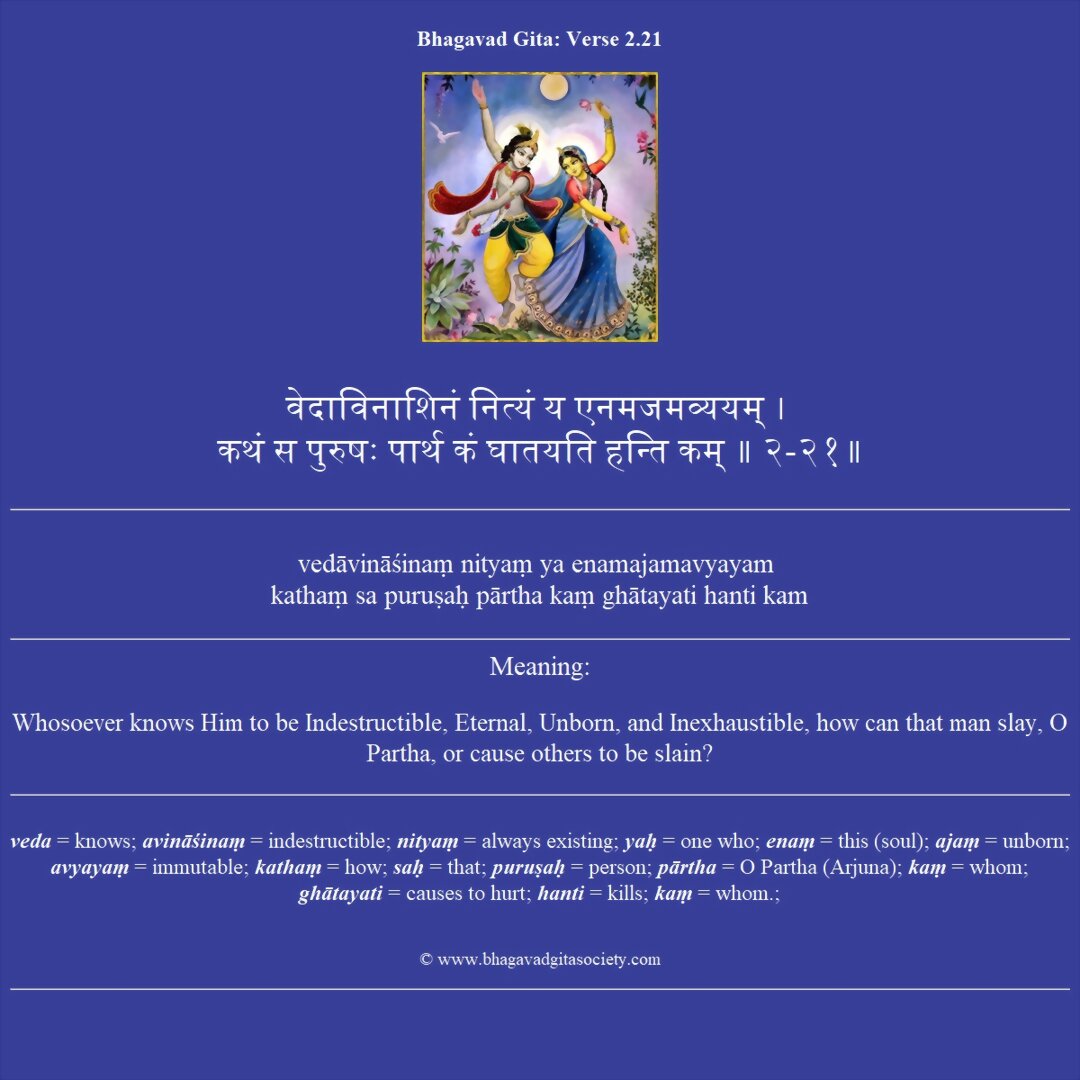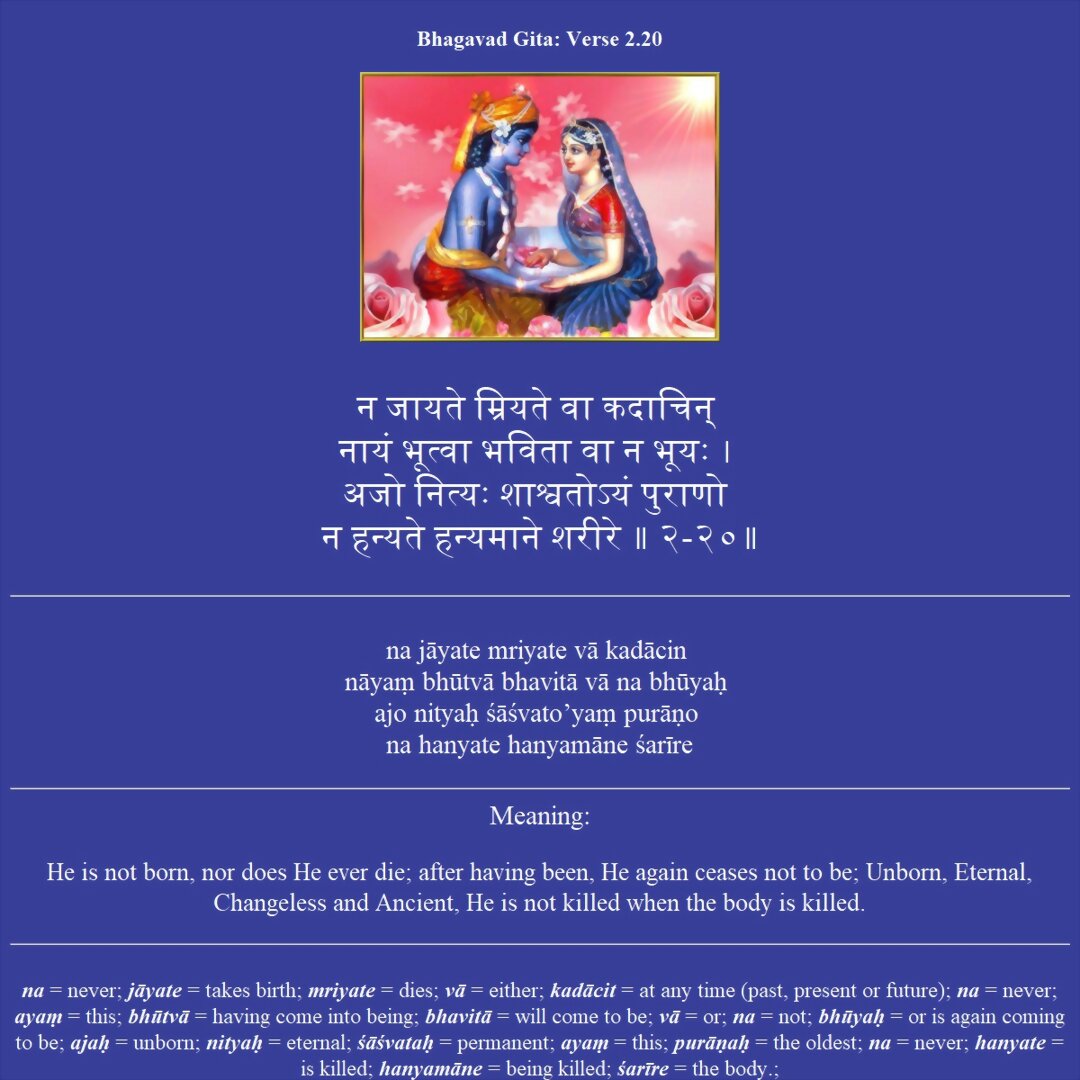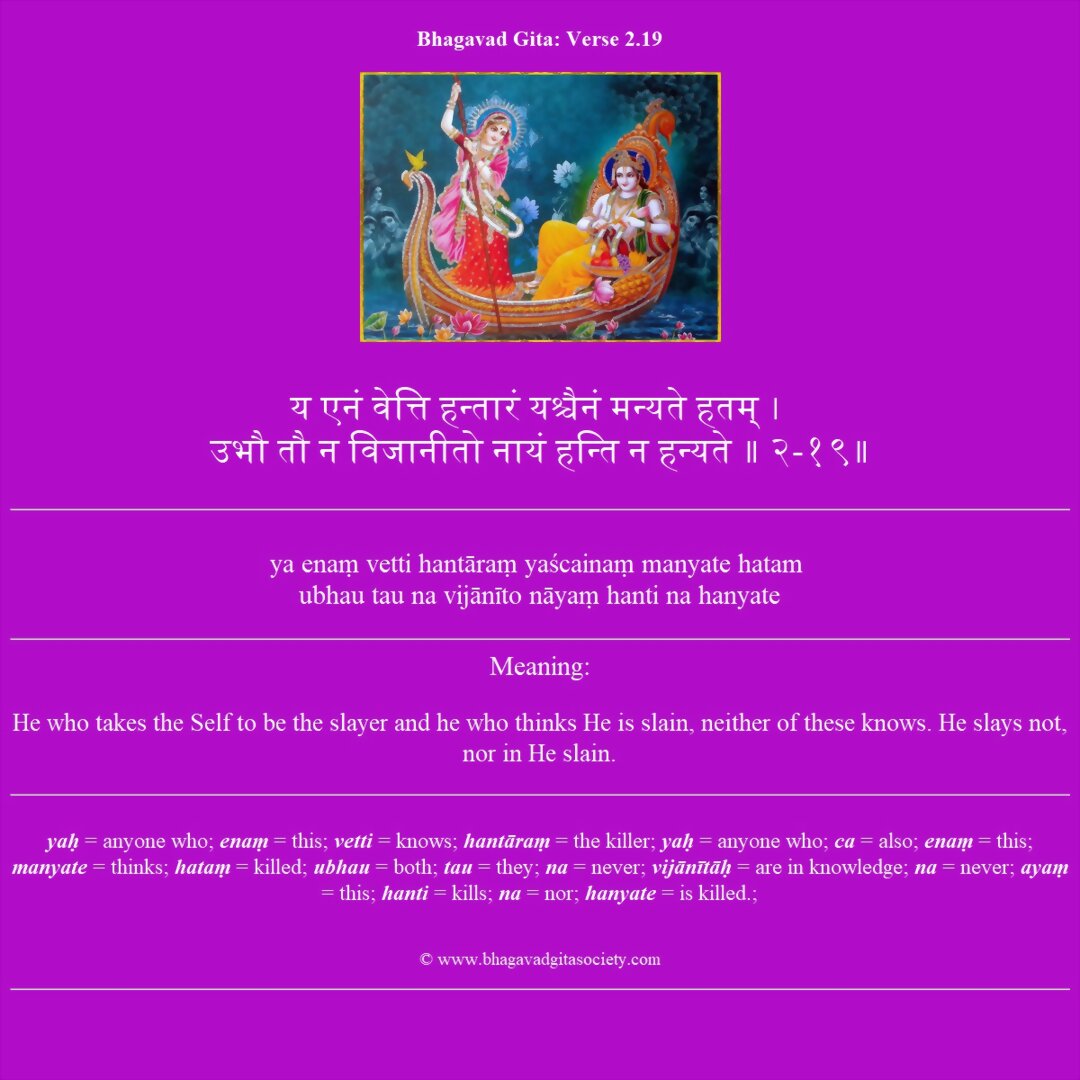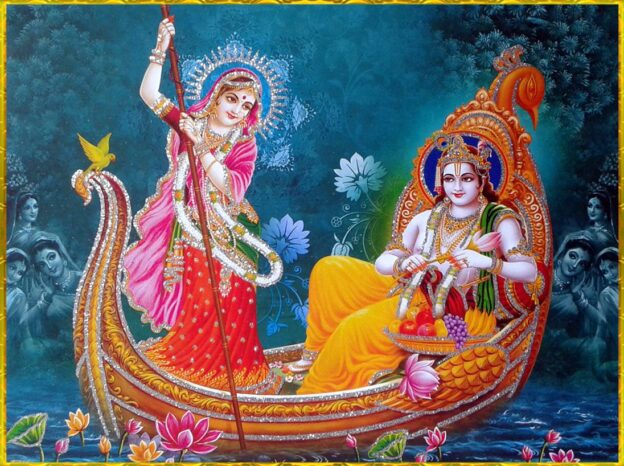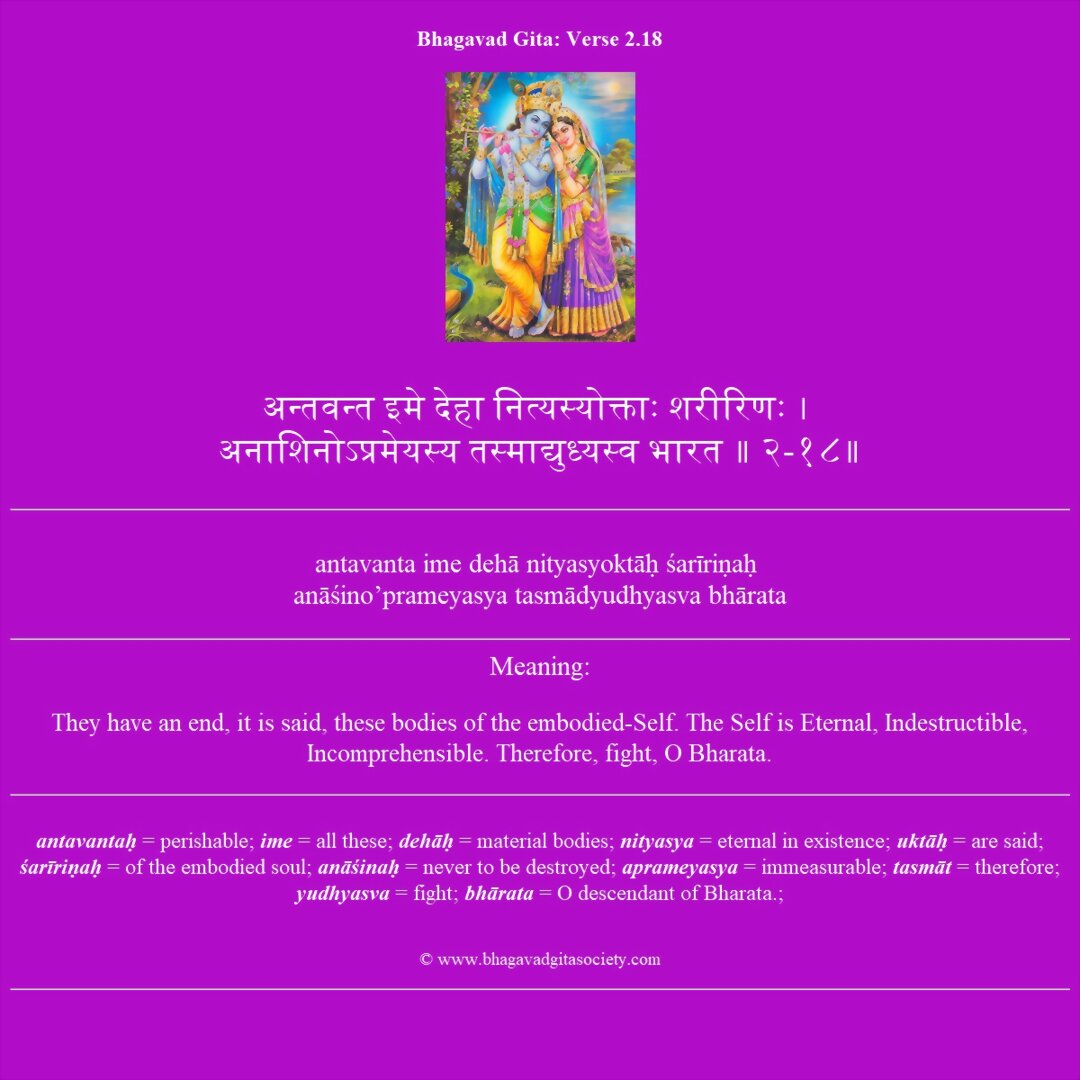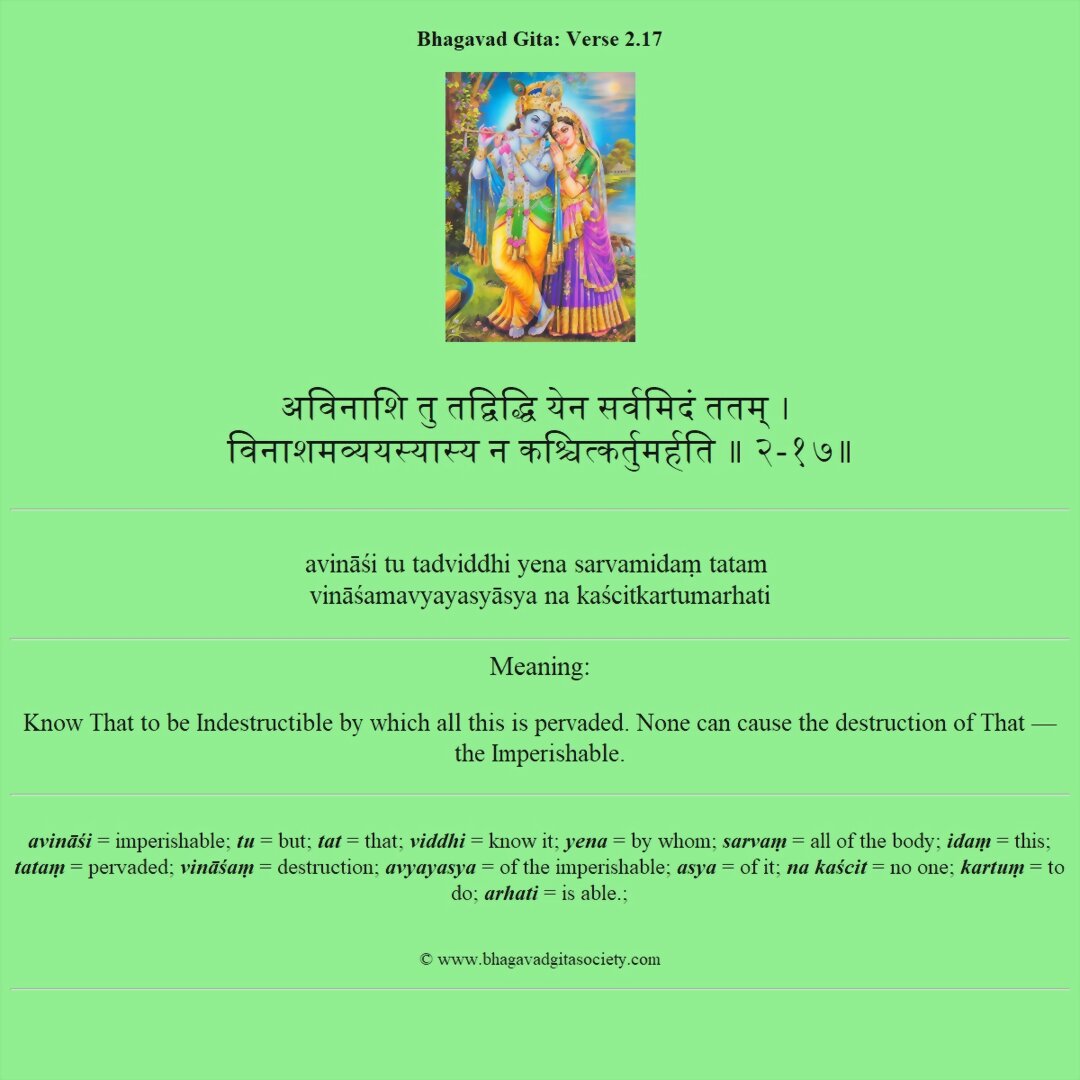Bhagavad Gita: Verse 2.26
अथ चैनं नित्यजातं नित्यं वा मन्यसे मृतम् ।
तथापि त्वं महाबाहो नैवं शोचितुमर्हसि ॥ २-२६॥
atha cainaṃ nityajātaṃ nityaṃ vā manyase mṛtam
tathāpi tvaṃ mahābāho naivaṃ śocitumarhasi
Meaning:
But even if you think of Him as being constantly born and constantly dying, even then, O mighty-armed, you should not grieve.
atha = if, however; ca = also; enaṃ = this soul; nityajātaṃ = always born; nityaṃ = forever; vā = either; manyase = you so think; mṛtaṃ = dead; tathāpi = still; tvaṃ = you; mahābāho = O mighty-armed one; na = never; enaṃ = about the soul; śocituṃ = to lament; arhasi = deserve.;
